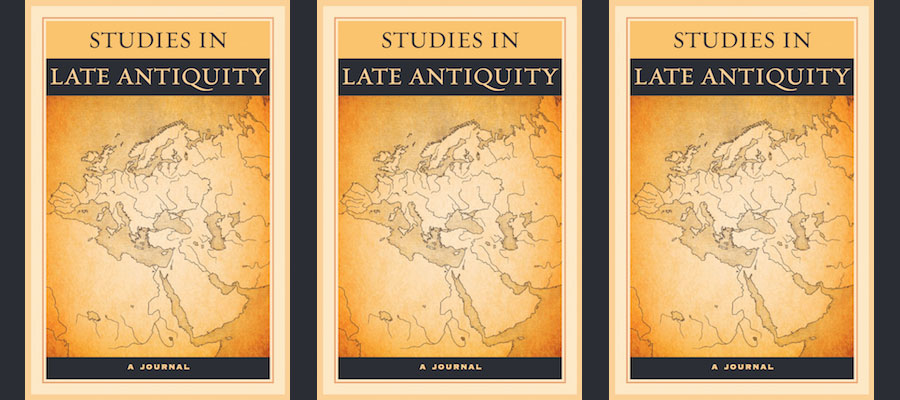Studies in Late Antiquity, volume 6, issue 3 (Fall 2022).
CONTENTS INCLUDE
Refiguring Sex Work in the Life of Theodoros of Sykeon
Jo Dowlingsoka
The Life of Theodoros of Sykeon is a remarkable hagiographic text that is well known to contemporary scholarship as a source for information about rural life in Asia Minor in the sixth and seventh centuries. This text represents the saint’s mother, Maria, and the rest of his female family as a group of independent women who ran an inn on the imperial road through Galatia. These women set up a business that the text alternatively calls the “business of a hetaira” and the “business of pornike.” Hetaira, the feminine form of a word meaning “companion,” was in antiquity a word that meant a high-class woman who either worked as a courtesan or was sexually free. Pornike is a slur word that generally is translated as “fornication.” Through its highly gendered and sexually charged depiction, the author makes Maria into a negative foil for Theodoros’ future saintly career.
This article examines this depiction of Maria in both the post-641 CE text and a slightly less hostile depiction of her in a shorter version of The Life of Theodoros of Sykeon. It uses these texts to ask the question, “What happens if the representation of sex worker characters in these two texts is read as a mode of making practical/moral and theological points in service of monastic communities?” Building on ideas from Roland Betancourt’s recent Byzantine Intersectionality, the project is an initial foray into acknowledging the ways that representations of sex work are highly gendered and that the subjects are entirely silenced.
The Tower of Babel and Language Corruption: Approaching Linguistic Disasters in Late Antiquity
Yuliya Minets
This paper analyzes a set of ideas about language attested by late antique Christian writers—namely, their speculations on what kind of transformation languages undergo over time and their ethical, theological, and historical assessments of linguistic change and linguistic diversity. The incident that triggered the diversification of languages was normally associated with the biblical story about the Tower of Babel (Gen 11.1–9), the single dramatic event that once and for all changed the linguistic makeup of humanity and could be considered a disaster par excellence. And yet, the attitudes of late antique writers to the event and the subsequent linguistic diversification ranged from overtly negative (divine punishment and revenge) to reservedly positive (a minor inconvenience that prevented further wrongdoing) to a wholeheartedly optimistic reaction. Similarly, the gradual process of language change that always happens over time was often described in terms of “corruption” and “decline.” Observations of ancient writers that languages “get corrupted” due to multiple factors presuppose the slippery slope of a slow, empirically unimpressive, but steady and sure catastrophe. Its consequences are more threatening the less attention people pay to it. Comparing the two conceptual frames late antique writers employed to approach linguistic transformations—the sudden dramatic confusion of tongues at Babel and the everyday “slow catastrophe” of language corruption—this study challenges our own scholarly views on what constituted a disaster for intellectuals in Late Antiquity.
Apollinarios, the Chalcedonian Theodosian: Egyptian Religious Sectarianism in the Chronicle of John of Nikiu
Felege-Selam Yirga
This paper argues that the Chronicle of John, the bishop of Nikiu, in Egypt, a late seventh-century world chronicle, preserves two passages that suggest the Egyptian Chalcedonian patriarch Apollinarios (551–570 CE) was chosen by a coalition of Chalcedonians and anti-Chalcedonian Severan-Theodosians as a bulwark against the growing popularity of the aphthartist Gaianites during the reign of Justinian I. The accidental preservation of this memory in a rather unpopular text suggests that the lines separating the Severan-Theodosian (or proto-Coptic) miaphysite church from its doctrinal rivals were contingent and often remarkably blurry.
